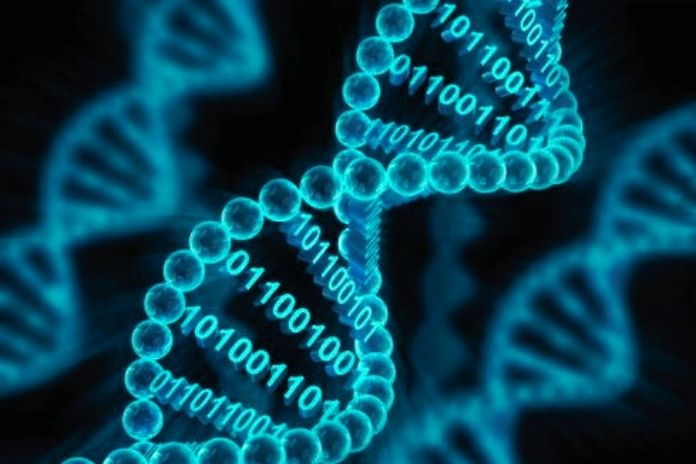Learning From Patient Data: Big data enables faster and earlier cancer diagnoses and paves the way for new treatment approaches. The intestinal microbiome analysis can reveal whether cancer patients respond to potential therapy. Dr In her guest article, Barbara Sladek shows that the potential of the technology goes far beyond that.
An oncological indication not only places a heavy burden on those affected and their relatives but also on the healthcare system. This is due to insufficient early detection and deficiencies in the treatment itself. Late and incomplete methods of diagnosing cancer cause suffering for patients and high costs for the healthcare system.
Cancer is the second most common fatal disease. The Robert Koch Institute puts the number of people who fall ill every year at around 500,000. According to forecasts, new cancer cases will increase by 23 per cent by 2030 due to demographic change.
New Therapeutic Approaches
Recent studies show that the gut microbiome can play a major role in successfully fighting cancer and thus enables new approaches. The intestine is considered the largest immune organ in the human body. Its microbes not only have a decisive influence on how the body reacts to nutrition and metabolism but also on the human immune system.
And this is where it gets exciting for cancer therapy. While very few microbes directly cause cancer (e.g., HPV), many appear to be involved in cancer development or influence disease progression. With the help of big data analysis, this property can be used medically. Big data in medicine aims to provide comprehensive information about people relevant to health, evaluate it, and thus classify better different factors influencing the body. In principle, Big Data enables earlier and faster diagnoses and more targeted and individualized therapy and medication for patient groups.
When it comes to the gut microbiome, this endeavour is extremely complex: there are many ways in which symbiotic bacteria interact with the human body. At the same time, however, the approach offers enough potential for diagnostic and pharmaceutical applications to mean a quantum leap forward for doctors and patients.
AI Enables Faster Analysis
This potential can now be leveraged in cancer, thanks to new methods for gene analysis and sophisticated data processing technologies. A good example of this type of precision oncology is Biome Diagnostics. The genome of the intestinal microbes is extracted from a patient’s stool sample in the laboratory and then decoded using next-generation sequencing (NGS). In this way, the bacterial population can be determined in detail. Patterns in the genetic data provide information about whether the human body responds to certain cancer therapies and how severe the side effects will be. It is possible that cancer can even be detected earlier than was previously the case.
An artificial intelligence (AI) searches the huge amounts of data for specific signatures that have emerged from thousands of stool samples from cancer patients to identify these patterns. Biome Diagnostics currently has over 20,000 data sets on evaluated intestinal microbiome profiles.
The procedure could arrive in medical practice before the end of this year. The goal is to improve the use of a new, powerful form of immunotherapy called immune checkpoint inhibitors (ICI). Compared to standard chemotherapy, I have greatly improved patient response and overall survival rates. But the costs of this treatment are enormous, and the side effects can be extreme. For many patients, it can mean, for example, severe tiredness, nausea, vomiting, skin reactions, or even the development of autoimmune diseases. It is all the more important to assess beforehand whether – and if so – how the treatment will work.
Here, data-driven microbiome diagnostics can enable targeted therapy: The prediction accuracy for response to ICI is over 85 per cent with the Biome Diagnostics method. It also helps to assess the severity of potential side effects. Research results presented in 2021 also suggest that the method could identify responders and non-responders independently of specific tumour types, i.e., it would be tumour-agnostic. However, this still has to be proven correct in the further course of clinical studies.
Final Investigations
The final investigations are currently underway. Several European universities and renowned hospitals are involved. The great hope is that doctors will be able to order test kits for their patients in the future to have such a prediction test carried out. After completing the analysis, the doctors receive a validated PDF report that contains all the information about the microbiome and the impact on the therapy or diagnosis. Based on this, the treating oncologist can offer personalized cancer therapy.
But that should only be the first step. Improvements in other cancer therapies are conceivable, as are more precise diagnoses. Under certain circumstances, colon cancer, for example, can be detected very early in this way – and thus possibly prevented. Biome Diagnostics is currently researching a corresponding approach.
Of course, it should be noted that the consequences of false statements can be serious. AI is, therefore, rightly subject to special controls in healthcare. For this reason, it is essential to measure and monitor the performance of the AI continuously. This can be done, for example, as part of post-market surveillance. The AI is regularly tested with new data sets to check its accuracy and make adjustments if necessary constantly. It is also important to set up a feedback loop with doctors. In this way, they can share their experiences and ensure that AI-based diagnostic tools continue to improve.
ALSO READ: Digital Ecosystems – New Market Access With Manageable Effort

